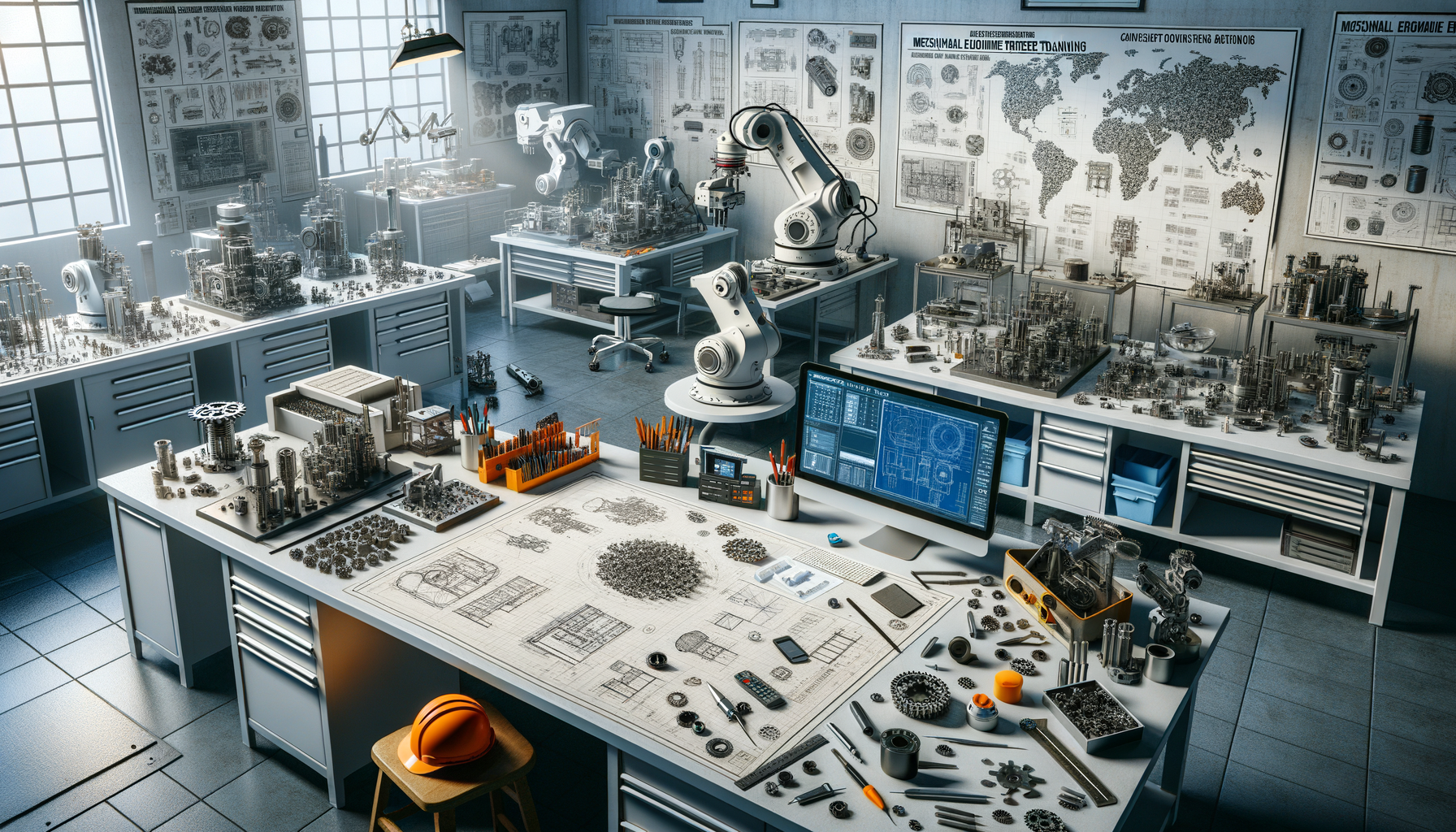
Launch Your Aviation Career: Mechanical Engineering Training in Canada
Understanding the Role of a Mechanical Engineer in Aviation
Mechanical engineers play a crucial role in the aviation industry, ensuring that aircraft operate safely and efficiently. Their expertise is vital in designing, testing, and maintaining the mechanical components of aircraft. This includes everything from engines and landing gear to the systems that control flight operations. In Canada, the demand for skilled mechanical engineers in aviation is on the rise, driven by the growth of the aerospace sector and the need for innovation in aircraft technology.
Mechanical engineers in aviation are tasked with a variety of responsibilities, such as:
- Designing and analyzing aircraft systems and components.
- Conducting tests to ensure compliance with safety standards.
- Collaborating with other engineering disciplines to enhance aircraft performance.
- Maintaining and troubleshooting mechanical systems to prevent failures.
These professionals must possess a strong foundation in physics, mathematics, and materials science, as well as specialized knowledge in aerodynamics and propulsion systems. Their work is critical in advancing aviation technology, improving fuel efficiency, and reducing environmental impact.
The Path to Becoming a Mechanical Engineer in Aviation
Embarking on a career as a mechanical engineer in the aviation sector requires a combination of education, training, and practical experience. In Canada, aspiring engineers typically begin with a bachelor’s degree in mechanical engineering. This foundational program covers essential topics such as thermodynamics, fluid mechanics, and structural analysis, providing students with the skills needed to succeed in the field.
Following their undergraduate studies, many engineers choose to pursue further specialization in aerospace engineering. This can be achieved through a master’s degree or professional development courses that focus on aviation-specific topics. Additionally, obtaining certification from a recognized engineering body, such as Engineers Canada, is often required to practice professionally.
Practical experience is equally important. Internships and co-op programs offer students the opportunity to apply their knowledge in real-world settings, gaining hands-on experience with aircraft systems and technologies. Networking with industry professionals and attending aviation conferences can also provide valuable insights and career opportunities.
Career Opportunities and Future Prospects
The future is bright for mechanical engineers in the aviation industry. Canada’s aerospace sector is a significant contributor to the economy, with numerous companies involved in aircraft design, manufacturing, and maintenance. As the demand for air travel continues to grow, so too does the need for skilled engineers who can innovate and enhance aircraft performance.
Career opportunities for mechanical engineers in aviation are diverse and rewarding. Graduates can find positions in:
- Aircraft design and manufacturing companies.
- Aerospace research and development organizations.
- Airlines and maintenance repair organizations.
- Government agencies overseeing aviation safety and regulations.
Moreover, the push towards sustainable aviation presents new challenges and opportunities. Engineers are at the forefront of developing eco-friendly technologies, such as hybrid-electric propulsion systems and lightweight materials, which are crucial for reducing the environmental impact of air travel.
In conclusion, mechanical engineering training opens the door to a dynamic and impactful career in the aviation industry. With the right education and experience, individuals can contribute to the advancement of aerospace technology and enjoy a fulfilling professional journey.


